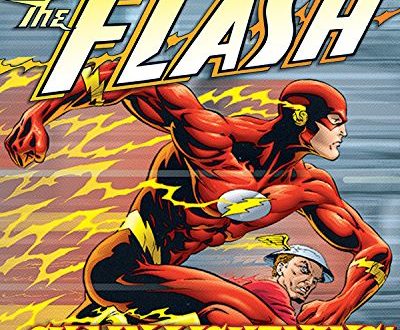18
Apr
Pesach – Out in a Flash
Pesach – Out in a Flash
Shakedown 1979
Cool kids never have the time
-Smashing Pumpkins
The definitive symbol of Pesach is matzah, unleavened bread. What exactly is unleavened bread? Once flour and water are mixed together they begin to ferment and rise on their own (even without yeast) after a short amount of time – 18 minutes to be exact. So matzah is “bread” that has completed its entire preparation – from the flour being mixed with water to it being popped into the oven – before it can ferment and start rising. Visit a matzah bakery and you will never see Jews move so quickly – except at an event where food is being served of course.
The Haggadah narrates the historical meaning behind eating matzah:
What is the reason for this matzah that we eat? Because the dough of our ancestors did not have enough time to become leavened before God revealed Himself to the Jewish people, and redeemed them, as it says (in the Torah), ” They baked the dough which they took out of Egypt into matzah because it did not rise since they were driven out from Egypt, and they could not linger.”
Hence, matzah is associated with the haste and swiftness by which the Jewish nation left Egypt. Ok… but it makes one wonder, why indeed did God have to rush us from Egypt in the first place? We were already there for 210 years anyway, how terrible would it have been for Him to give the Israelites another day or two to gather their things together, plan properly for the journey ahead and maybe make a trip to Grodzinski’s Bakery and pick up a nice (leavened) rye (with seeds, please. Oh, and a poppy Danish too) for the road?
In truth, there is significance, not just to the fact that we left the slavery of Egypt, but in the manner by which the Jewish people left. It expresses an integral lesson of Pesach and the general notion of Freedom and its cousin, Redemption. Haste was a necessary and definitive component of that momentous event and serves as a paradigm for all future Redemptions – both personal and national.
In everyone’s life, at some point or another, significant and life-altering events arise without any warning or indication. And even if there is some sort of hint or anticipation of their arrival, there is still a certain quality of disbelief once they indeed arise. One can plan for a wedding many months in advance, know that a child is to be born for the good part of a year, or – on the other end of the spectrum of life-cycle events – know with a degree of certainty that the demise of a loved one is on the horizon. But when it happens, there is a stark and unexpected reality to it that no amount of preparation or prearrangement can ever provide.
These transformative events are so dramatic that they catapult us into new ways of viewing and living our lives. They become eye-opening and life-changing experiences that alter us dramatically to a point where we sometimes cannot even relate to the person whom we were prior to their happening. They become moments of deliverance from a previous life.
This is what Judaism means by Geula, Redemption. We become redeemed and released from the constricted and limiting lifestyle and world-view that has dominated and defined us previously. In essence, we each personally leave our own Mitzrayim (Egypt). And indeed the Hebrew name for Egypt means the land of limitation and constriction, coming from the word מצר meaning borders. We leave, and we leave behind, the place that squeezes and suffocates the life of all who dwell there. We become free and released, or to borrow a phrase from another religion, we are born again.
Matzah is the symbol of Redemption because haste is inherent to Redemption. No matter how fast or slow Redemption happens, it is always too sudden because significant change, by its very nature, is something that we can never fully understand or know until we get there. It is something that we will never be able to anticipate or pretend to understand until it has already arrived. While there may be a build up to it, there is no process to Redemption; it is a momentary happening that alters things forever and happens in a split second. Redemption may come through sorrow and pain, or may come through joy, but it is never on time.
The haste symbolic of matzah is because the very nature of any Redemption is that surreal, out-of-body, timeless experience where we get carried along by forces far greater than we can ever anticipate, know, fathom or imagine. All we can do is go along for the ride, much the same way the Israelites did when God thrust them out of Egypt.
So this Pesach, as we sit with family and friends, read the Haggadah and retell our story, while we eat the Matzah let us hope and pray that one day soon, the final Redemption will arrive and send us all to great new heights … whether we are ready for them or not.
Faster than the speed of sound
Faster than we thought we’d go
Beneath the sound of hope…
The street heats the urgency of now

